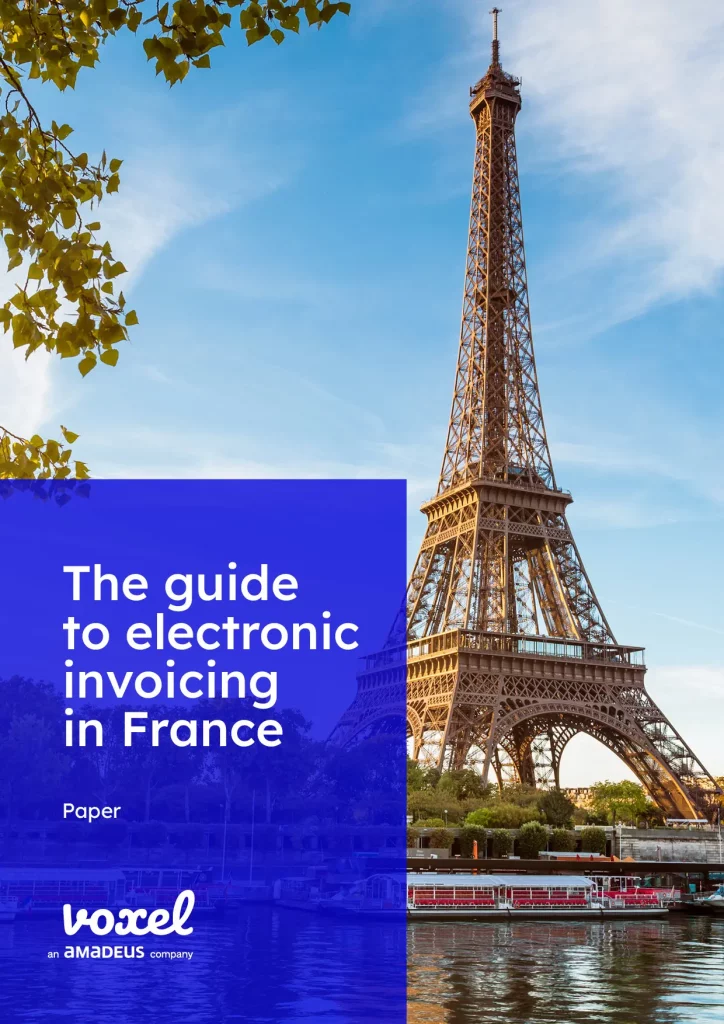Downloadable In 2026, France will start regulating electronic invoicing for all B2B transactions. This entails changes in the way companies’ issue and receive invoices, communicate with the tax administration, and interact with other businesses.
What will you find in this paper?
- Overview: learn the reasons for the rise of electronic invoicing regulations in Europe and worldwide
- Benefits: discover the benefits of e-invoicing for your company
- Models and regulations: understand the model chosen by the French tax administration and its main components
- Implementation: find out the key dates and implications of Ordinance No. 2021-1190 to French businesses and other companies who make business in the country
- Compliance: comprehend what your company needs to stay compliant with the regulatory changes
Download it now for free and find out all you need to know about the implementation of e-invoicing in France.

Download the full paper

We inform you that Voxel Media, S.L. will process your data in order to manage your requests, answer your questions, organize events and, when appropriate, send you our Newsletter to keep you informed of our activities and services. You can exercise your ARCO+ rights (access, rectification or deletion, limitation to processing, opposition and portability) by sending an email to [email protected].












